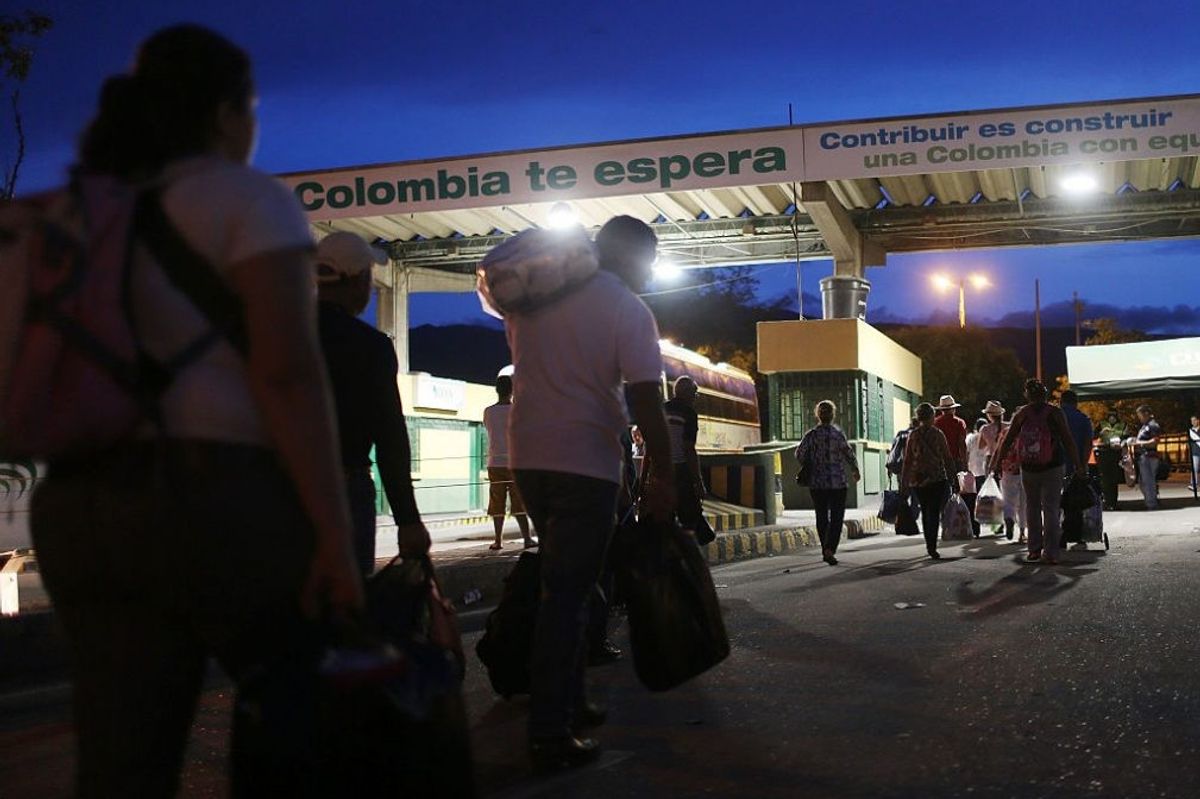The threat level of an organized Islamic State (also known as ISIS or ISIL) attack during the Olympic Games in Rio de Janeiro, Brazil – which kick off next week – is low, analysts tell The Cipher Brief.
Still, Brazilian authorities have arrested a dozen suspected ISIS sympathizers, who may have been plotting an attack on the Games. Another Brazilian man, of Lebanese descent, was arrested last week, over alleged ties to ISIS. Meanwhile, Brazilian police are investigating a second group of potential would-be terrorists, according to Fox News Latino.
SITE Intelligence Group, which monitors extremist activity, reports, “IS [Islamic State] has increased attention to Brazil and Portuguese speaking audiences, and for the first time ever, IS propaganda is being translated to Portuguese on social media […] The activity has been accompanied by a pro-AQ [al-Qaeda] Telegram channel’s ongoing calls for attacks at the Rio Olympics.”
Although the likelihood of an organized terror attack may be low, Robert Muggah – Research Director at the Rio-based Igarapé Institute – says the threat level is increasing, due to irregular hybrid attacks that are uncoordinated and relatively unsophisticated, like the recent “lone wolf” attack in Nice, France.
The seriousness of an “amateur” attack should not be downplayed, says Daveed Gartenstein-Ross, a senior fellow at the Foundation for Defense of Democracies. Gartenstein-Ross tells The Cipher Brief although ISIS does not have an extensive infrastructure in Brazil, the possibility of a small cell attack is there, and it could be very deadly.
After the arrests of 11 of the dozen suspected would-be terrorists in Brazil, the country’s Foreign Minister José Serra said the arrests were justified even if the suspects are amateurs. “Violence, in this case, does not require professionalism, it requires fanaticism and a troubled mind,” he said.
Brazil has been preparing since 2009, when the 2016 Games were awarded, to secure Rio and thwart any attacks. Muggah explains, “Brazil´s military, intelligence, and police have prepared for a range of terrorist scenarios – whether from land, sea, or air. They have also assembled a robust cyber-security infrastructure that includes the intelligence agency (ABIN), the Armed Forces Cyber Command, and the Internet Steering Committee. Alongside foreign intelligence and police services, the International Olympic Committee has also set-up a security operations center.”
There’s only one problem, says Muggah. That is, the security infrastructure is largely organized to deter or respond to a coordinated attack, rather than “an asymmetric attack led by a so-called ‘lone wolf’ who has been remotely radicalized,” he says.
Why is Brazil largely unprepared for the latter? The changing terror landscape, with increased connectivity via new technologies and the recent spike in “lone wolf” attacks, is partially to blame. “Brazil is confronting these kinds of threats at a time when the threats themselves are growing and expanding globally,” says Muggah.
Brazil has not historically been a target of international terrorist groups and so, Muggah says, the focus in the lead-up to the Games has been on securing major venues and protecting foreign dignitaries and tourists (an effort unlikely to prevent a lone wolf-style attack anywhere outside of the highly protected areas).
Muggah also notes that the quality of privately contracted security personnel – like those responsible for screening baggage at airports – is questionable, and, moreover, security is not standardized for events throughout Rio. For example, Muggah says countries have different approaches to security for their “houses” – and events that will be held there – in the Olympic Village, “with some demanding prior accreditation to attend and others opting for an open door policy.”
One measure that Brazil has undertaken that could help prevent uncoordinated attacks is intelligence sharing. Reuters reported that a Brazilian prosecutor claims the U.S. Federal Bureau of Investigation (FBI) gave Brazil the tip that led to the first round of suspected would-be terrorist arrests.
Indeed, the FBI is “very heavily involved” in supporting its counterparts in Brazil, says Muggah, and “there’s fairly close cooperation when it comes to the monitoring of these suspected hundred [terrorism] sympathizers [in Brazil] that are frequently mentioned in the press.”
There are at least 33 international intelligence agencies present in Brazil, according to Muggah.
With Brazil’s new Michel Temer-led government, a shift toward even more intel-sharing could be on the horizon. “The current government has sent a message that it is pivoting away from what it describes as a more ideologically informed foreign policy [spearheaded by former president Dilma Rousseff, who has been suspended from office until a final impeachment vote takes place] to one that is more interest-based,” Muggah explains.
With regards to threats from other terrorist organizations that could be eyeing the Rio Games, analysts tell The Cipher Brief the risk is low. Gartenstein-Ross puts the maximum chance of an al-Qaeda-led attack at 10 percent, saying although the group has a presence in the region, it likely won’t strike for “capabilities reasons.”
Muggah points out that al-Qaeda could be a threat if it links up with ISIS. “There’s already clear evidence of a level of fusion between the two groups [al-Qaeda and ISIS],” he says, noting that Brazilian Telegram channel “Nashir Portugues” – which translates ISIS messaging into Portuguese – draws on al-Qaeda propaganda, including the group’s weekly magazine. That being said, Gartenstein-Ross says cooperation between the groups on a high organizational level would make no sense, due to the rivalry between the two.
Hezbollah – which is very active in the region – will likely not strike, according to Gartenstein-Ross, because that would play against their current interests, for instance in Syria.
Individuals – amateurs – who are ISIS, or even al-Qaeda, sympathizers are the ones Brazilian authorities should be monitoring in order to prevent any terror attacks during the Olympic Games. Yet although Brazil is engaging in robust intel-sharing with other countries, most of Brazil’s security preparations have been structured to deal with large-scale organized threats, which analysts agree are not likely to occur.










